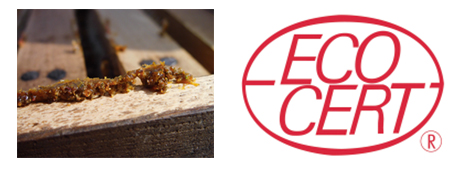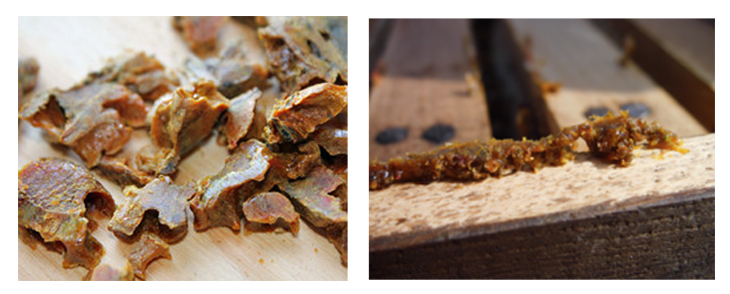Top Suppliers Propolis block in Mali
Top Suppliers Propolis block in Mali Detail:
[Products Name] Propolis block, pure propolis, raw propolis
[Specification] Propolis content 90%,95%
[Gerneral feature]
1. Low antibiotics
2. Low PAHs, can approve to 76/769/EEC/German:LMBG;
3.Organic certified by ECOCERT, according to EOS & NOP organic standard;
4.Pure natural propolis;
5.High content of flavones;
6.Low temperature extracted, retain high activity of all nutritions;

[Packaging]
1. 1kg/aluminum foil bag, 20kgs/carton.
[How to get it]
First, we collect raw propolis from beehives, then extract by low temperature with ethanol. Filter and concentrate, we get the pure propolis block at 90% to 95%.
[Introduction]
Propolis comes from the substance like natural resin, which is collected by the bees from exudates of plants branches and bud the chemical substances of Propolis are found to be various, such as beeswax, resin, incense lipids, aromatic oil, fat-soluble oils, pollen and other organic matter. Studies have shown that the source of propolis resin in material has three types: bees collected plants secreted fluid, secretion in vivo metabolism of bee, and involvement in the process of forming the material.
We can supply Propolis Extract with food-grade and medicine-grade .The raw materiall is came from non-polluting food grade propolis .Propolis extract was made of high-grade propolis. It maintains the propolis effective ingredients during the procedure of extraction under constant low temperature , taking off the useless substances and sterilization.
[Function]
Propolis is a natural product processed by bees mixed with glutinous and its secretion.
Propolis contains more than 20 kinds of useful flavonoids, rich vitamins, enzymes, amino acids and other microelements, etc. Propolis is called “purple gold” owing to its valued nutrients.
Propolis can remove free radical, lower blood sugar and blood fat, soften blood vessels, improve micro-circulation, enhance immunity, anti-bacteria and anti-cancer.
Product detail pictures:

Related Product Guide:
We are experienced manufacturer. Wining the majority of the crucial certifications of its market for Top Suppliers Propolis block in Mali , The product will supply to all over the world, such as: Finland, Seychelles, Marseille, We believe in quality and customer satisfaction achieved by a team of highly dedicated individuals. The team of our company with the use of cutting-edge technologies delivers impeccable quality products supremely adored and appreciated by our customers worldwide.
https://ditchdaboss.com – Irresistible roasted gourmet coffee with green coffee extract, rich in chlorogenic acids that help you control your appetite and reduce your waistline. Its antioxidant components will also help you to reduce your appetite and boost the elimination of cellulitis, by specifically eliminating accumulated fat.
Ingredients: Freeze dried roasted gourmet Coffee, Green Coffee Extract (Robust coffee, 45% Chlorogenic acid), Xantan gum, Stevia (Stevioside sweetener). Stevia is a zero calorie sweetener.
C & C FIT by FuXion – Gourmet Coffee That Calms and Burns Fat
We have been looking for a professional and responsible supplier, and now we find it.







